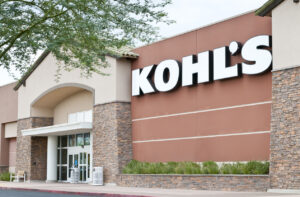The Scoop: Hearst-OpenAI deal highlights changing news ecosystem
Also: White House creates Reddit account; Meow Mix 12-hour jingle loop taps into brand’s legacy.

OpenAI has entered into a content agreement with Hearst to allow the artificial intelligence company to use the publisher’s newspapers and magazines to train its products, including ChatGPT.
As part of the agreement, ChatGPT will include citations and direct links to Hearst content, providing transparency and easy access to the original stories, according to OpenAI. Hearst publishes over 40 newspapers, such as the Houston Chronicle and San Francisco Chronicle, as well as more than 20 magazines, including Esquire, Cosmopolitan and Men’s Health.
Hearst will be paid for the use of its content, but terms weren’t disclosed.
Jeff Johnson, president of Hearst Newspapers, said that it’s “critical that journalism created by professional journalists be at the heart of all AI products.”
News Corp, owner of the Wall Street Journal and New York Post, struck a similar content-licensing deal with OpenAI five months ago, which also has deals with the likes of Time, The Atlantic and the Associated Press. However, a number of media companies have accused OpenAI of using their content without any deal being in place.
Last December, the New York Times sued OpenAI and Microsoft, alleging copyright infringement. The lawsuit claims that chatbots pose a threat to NYT’s business. Several other news outlets, ranging from local newspapers to Raw Story and The Intercept, have also filed similar lawsuits against OpenAI.
Why it matters: AI-powered tools are dramatically changing how users consume news and information.
With its content agreements, OpenAI will enhance not only its chatbot but also its prototype search engine, SearchGPT.
Right now, Google is the search king, commanding the overwhelming majority of market share. It’s estimated that about 40% of total traffic to all news sites is driven by Google search. But by establishing these integrated media partnerships, OpenAI is creating tools capable of yielding higher quality content derived from trusted news outlets and subject matter experts.
That could make OpenAI more valuable to media relations pros – especially as Google has threatened to remove links to news sites in California, New Zealand and other places that have considered charging technology companies for posting their content next to ads. As search challenges rise, it’ll be important to understand the ins and outs of those engines to optimize content – earned or not.
“Bringing Hearst’s trusted content into our products elevates our ability to provide engaging, reliable information to our users,” Brad Lightcap, OpenAI’s COO, said in a statement announcing the partnership.
Put simply: AI models trained on high-quality content will result in better results.
These types of arrangements are going to have a major effect on earned media. Understanding this landscape is key to tailoring SEO and media outreach for maximum organic reach.
Editor’s Top Reads:
- The White House is turning to Reddit to provide updates on Hurricane Milton as it approaches Florida as well as ongoing efforts related to Hurricane Helene. The administration has stated it plans to target larger sub-Reddits, like r/politics and state communities. So far the account has posted in the Georgia, North Carolina and Hurricane Helene subreddits.The new approach is a response to social media users flooding Reddit, X and other platforms with misinformation and disinformation about the federal government’s response to Helene – including conspiracy theories about government-run “weather machines” and lies about funding and resources for those affected by the storm. This approach highlights the importance of reaching audiences wherever they are and providing information in a way that resonates with them. Reddit has become increasingly popular because it lends itself to user-curated conversations. It’s also been a hotbed for conspiracy theories, especially during the pandemic. By entering the belly of the beast, Biden’s team will be able to monitor misinformation as it develops and craft messaging to counteract it. Just as significantly, it will allow them to clarify information and respond directly to questions and criticisms.
President Biden holds a briefing on Hurricane Milton preparation and Hurricane Helene response.
byu/whitehouse inpics - Thirteen states and the District of Columbia have filed lawsuits against TikTok, alleging that the short-form video platform is damaging the mental health of children. The main claim is that the platform aims to get kids hooked through the use of features such as targeted feed that encourage endless scrolling, buzzing notifications and face filters that create “unattainable appearances.” This legal challenge follows similar lawsuits against Meta’s platforms and YouTube, part of a growing movement calling out social media companies for their impact on young people’s lives. As a result, Instagram recently adopted account changes to protect teens on the app. As PR pros, these changes affect the PR industry on multiple levels. Young people are a key demographic for many brands and these changes will likely impact how they engage with them. But it’s also a crucial time to reflect on whether that approach is part of the problem. Behind each view, link and share is a person – often someone under 18. While reach and engagement matter, your approach is important, too.
- Pet food brand Meow Mix has created a 12-hour loop of its iconic jingle as a promotion that allows people to earn free cat food – more the longer they listen. Throughout the video, coupon codes appear as audio-only content, requiring viewers to listen carefully to claim them. The video, pre-roll on YouTube and available on the Meow Mix website, can’t be fast-forwarded or rewound. Those who make it to the end have a chance to win the “Ultimate Reward Pack.” The Meow-a-thon taps into the brand’s iconic 1980s jingle and its audiences’ love for their pets by giving them a unique way to show their passion for them. (Watching a video for half a day for free food? That’s love.) The promotion launched Oct. 1 and thus far has mostly garnered industry buzz for its creativity. If it hits with the public, awesome. If it doesn’t? It was a low-risk proposition. Most importantly Meow Mix took a chance on something new. That’s worth celebrating.
Casey Weldon is a reporter for PR Daily. Follow him on LinkedIn.







